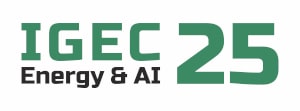Author: Salvador Carvalhosa (INESC TEC) - The transition to a low-carbon energy system requires innovative mechanisms that encourage sustainable behaviors beyond energy consumption reduction. This paper presents a novel methodology linking household recycling performance to the partial allocation of photovoltaic (PV) generation capacity, thereby creating a tangible incentive for circular economy practices. A Data Envelopment Analysis (DEA) framework is employed to rank households based on recycling efficiency, incorporating fuzzy logic to account for occupancy uncertainty. The model is complemented by bootstrap confidence interval estimation, correlation analysis, and permutation-based feature importance to validate the robustness of rankings. Households with higher DEA efficiency scores are allocated a proportionally greater share of PV generation benefits. A synthetic dataset demonstrates the methodology, which is designed for integration into community PV sharing schemes or municipal energy programs. Results show that DEA can effectively differentiate performance even among households with similar resource usage, and the proposed incentive system could simultaneously promote renewable energy adoption and improved waste management behaviors.
